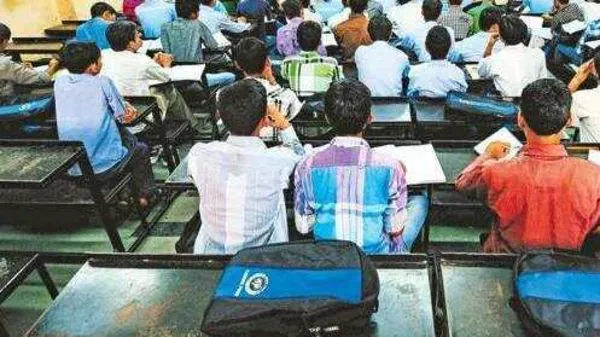The Ministry of Social Justice and Empowerment has issued provisional award letters to only 40 of the 106 students selected for the prestigious National Overseas Scholarship (NOS) for the 2025–26 academic year; leaving more than 60% of meritorious candidates without confirmation. As per The Hindustan Times, the ministry has stated that the remaining 66 letters “may be issued… subject to availability of funds”, raising widespread concern among aspirants who were previously assured full support.
The Ministry attributes this freeze to the lack of clearance from the Cabinet Committee on Economic Affairs (CCEA), a high-level body chaired by Prime Minister Narendra Modi. A July 1 government communication cited by the newspaper stated: “Provisional award letters to the remaining candidates (from serial number 41 to 106) in the selected list may be issued in due course, subject to availability of funds.”
Established in 1954–55, the NOS scheme offers financial assistance to students from historically disadvantaged and oppressed communities, including Scheduled Castes (SC), De-notified and Nomadic Tribes (DNTs), semi-nomadic tribes, landless agricultural labourers, and traditional artisan families, with an annual household income cap of Rs 8 lakh. It enables them to pursue postgraduate and doctoral studies abroad.
In previous years, all selected candidates received provisional letters without delay. This year, however, the Ministry has adopted what it describes as a “phased approach” that hinges on funding availability—a move that has left many scholars in limbo just weeks before international admissions deadlines.
Speaking to The Hindustan Times, an unnamed ministry official pointed squarely to bureaucratic red tape at the highest levels: “It is an issue with the Cabinet Committee on Economic Affairs not approving the money allocated to these scholarship schemes. We have the money, but we also need the green signal from above to give it out.”
Government Says no funds, but spends over ₹500 crore on PM’s Foreign Trips
The claim of “lack of funds” for the National Overseas Scholarship stands in stark contrast to the significant public expenditure on Prime Minister Modi’s own overseas travel. According to data provided by the Ministry of External Affairs in response to a parliamentary question raised by MP Fauzia Khan, over ₹517 crore was spent on PM Modi’s foreign visits between 2014 and 2022 alone. This includes costs for chartered flights, accommodation, logistics, and security. The expenditure on a single foreign trip often exceeds the annual budget for the NOS scheme. The contrast has drawn serious concern among student groups, academics, and civil society organisations, who view this disparity as a reflection of the state’s shifting priorities—away from inclusive education and toward high-profile statecraft.
Broader pattern of scholarship disruptions
This isn’t an isolated instance. A series of scholarship schemes targeting marginalized students have faced similar bottlenecks, delays, and arbitrary exclusions in recent months—raising questions about systemic withdrawal of support for higher education among Dalit, minority, and backward-class students.
Take the Maulana Azad National Fellowship (MANF), for instance. This fellowship, awarded by the Ministry of Minority Affairs to research scholars from six notified minority communities (Muslim, Christian, Sikh, Buddhist, Jain, and Parsi), has left over 1,400 PhD candidates without stipends for months. According to a Wire investigation published in June 2025, payments to most scholars have been stalled since December 2024. Some have not received their stipends even prior to that period. (Detailed report may be read here and here.)
Similarly, the National Fellowship for Scheduled Castes witnessed chaos during its June 2024 cycle. Initially, the National Testing Agency (NTA) released a list of 865 selected candidates in March 2025. However, just a month later, a revised list slashed the number to 805—removing 487 previously selected scholars without explanation or transparency, triggering anguish and confusion across research institutions.
Political Pushback and Declining Numbers
On June 10, Leader of the Opposition in the Lok Sabha and INC leader, Rahul Gandhi, wrote to Prime Minister Modi, raising alarm over what he described as the “deplorable” condition of hostels, malfunctioning portals, and erratic disbursement of scholarships across the country. He particularly highlighted the case of Bihar, where the state’s scholarship portal allegedly remained defunct for three consecutive academic years, effectively denying all aid to eligible students during 2021–22.
As per the report of The Wire, Gandhi noted a steep decline in the number of scholarship recipients: “The number of Dalit students receiving scholarships fell by nearly half, from 1.36 lakh in FY23 to just 69,000 in FY24.” He also criticised the quantum of scholarship disbursals, stating that many students complain the amounts are “insultingly low” and insufficient to cover basic expenses.
A larger crisis of educational access?
The government’s repeated invocation of “fund constraints” and committee approvals, despite existing budgetary allocations, has sparked outrage among students and education rights advocates, who say that the current delays are not mere administrative lapses but indicative of a broader policy shift away from targeted educational equity. For many first-generation learners from SC, OBC, EBC, and minority backgrounds, these scholarships represent their only pathway to higher education, especially abroad or at the doctoral level. As things stand, the fate of 66 National Overseas Scholarship awardees remains suspended in uncertainty, and with it, their long-cherished hopes of studying abroad.
Related:
Union scraps Maulana Azad Scholarships for Research Scholars from Minority Communities
Why has the Union govt pulled the plug on minority education schemes?
Maulana Azad Foundation terminated by Centre as government cuts down on minority schemes
